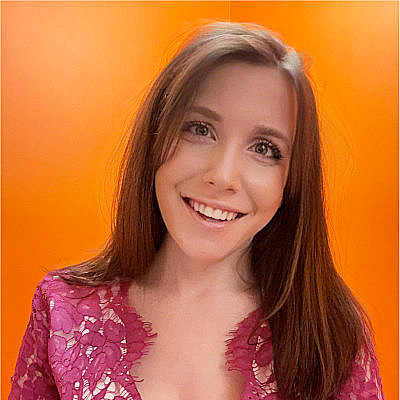David Berkowitz on infusing AI across the marketing stack
- 0.5
- 1
- 1.25
- 1.5
- 1.75
- 2
Announcer: Business Schooled.
Daryl Pereira: Hi there, folks. This is Darryl Pereira from IBM, and you're listening to the Business Schooled Podcast. In this podcast, we cover the latest and greatest of what's happening in the world of business, things you might not get in a business textbook, and continuing today, excited to say in a series focused on the business of AI, looking at this from different angles, including skills. Today, really excited to be looking at one particular area when we think about especially generative AI, and what's been emerging, where it can have a huge impact. Obviously, the creative space comes up, and very close to and often overlapping with the creative space, is marketing. Today, to help us understand a little bit about marketing and AI, pleased to be joined by David Berkowitz. David, if I could just ask you to tell us a little bit about who you are and how you got to where you are today.
David Berkowitz: Great to be here. Thanks so much, Darryl. The best way to describe myself is a serial marketer, and that's both the name of the consultancy that I set up, but also, I use that for the name of the marketing community I established five years ago, Serial Marketers, and so spent a lot of my career on the agency side, doing corporate marketing and strategy, and then went over to the tech side, working with a lot of marketing and ad tech companies, also in these strategy and marketing roles. Also, a habitual community builder, and so along with Serial Marketers this year, pretty recently, I launched the AI Marketers Guild just to bring people together around this very timely topic.
Daryl Pereira: In your mind, a little bit about marketing and what's the potential, maybe even if you want to show your own journey into this realm, and what got you into looking at AI for marketing?
David Berkowitz: Some of it dates back to my work on the agency side, where I fell into this role as the what's next person, and someone whose job it was to look at what's coming? This included a 360 eye under Dentsu, ultimately, trying to figure out what to make sense of social media marketing, and then writing the mobile marketing playbook, and then figure out all these next pieces from there. I'm doing a lot of demo days for our clients, and running emerging media labs and things like that. A lot of fun, but also very frustrating, because you're often working with the kinds of technologies that don't have widespread adoption yet, and that people can't understand why they should be using them. A lot of what I've done and had the opportunity to do is have a lot of hands- on experience, and getting to experiment with it. During the height of the Web3 craze, I had the CMO coin on a creator coin platform. As you might suspect, that platform didn't really go anywhere, and so kind of wound up being a mess, as a lot of things in the crypto and Web3 world wound up being. But it was so helpful for me to have this thing that I could actually try to see, " Okay, so how does having a currency like this intersect with the community?" As I was trying to figure out some things of what do I do next with the community, I ultimately made what was a tough, but in hindsight, easier than its team decision, to spin off the AI Marketers Guild as something separate, because there's just too much going on that is so heavily focused on what is that intersection of how do we apply, AI specifically as far as I'm concerned, to these marketing use cases, and can we bring the right people together around that? Ultimately, it was like managing one community is hard enough. Managing two or more is almost insanity, but there's a reason for both to exist, and I have a lot of fun doing it.
Daryl Pereira: The insanity, that it's fun. Good to know. Okay, you talk about the marketing use cases for AI. Just in case the audience is wondering, what are some of the use cases that you are seeing emerge? The specific ones you could point to.
David Berkowitz: Right now, the crazy thing is that if you are going into a marketing career, it doesn't really matter where you're going. Like brand side, agency side, you're working at a marketing tech company, or another platform like a major media property, like a Netflix, or TikTok, or something that where marketing is big use case for it, or you're just working with a local business down the street, then there are probably ways that you can and should be using AI. A lot of the earliest use cases you see are very focused on content generation, and as someone who's written hundreds of articles, and I actually got into the whole marketing field initially to be a writer, and trying to see if there was a career for me that way, and it evolved a few times, and a few pivots later, I am where I'm now, but yes, I use it to workshop ideas and create drafts of content. Those things are very near and dear to me. When I'm creating, say, an event landing page, now I just use an AI generated image. I used to have a stock photo service that I had a ton of credits for. Now, even using something that's a little less good and maybe a little more weird, I kind of like it for the work I do when you could tell something's a little bit distorted in some way, then great, but now, whether it's a Midjourney, or some up and coming players, like Idea Grab, let alone what Adobe is doing, if you're in the visual arts, there's so much you could do with very high professional standards, but it's not limited to that. Like a client I'm working with handed me some data to go through and some raw data from a survey. Well, before I even looked at what the survey said, I popped all of this into both ChatGPT and to Claude by Anthropic, one of the other big ones. I popped these in and I said, " Can you help me understand the top takeaways?" Then, let's say I'm an editor for a major ad trade, then which of these things are going to be most important for me? Say, " Help me write a draft, press release about this." All of these kinds of things that you could do on the data front. I was working on contracts for another group I'm involved with. I am not a lawyer, I don't even play one on podcasts. You do not want to come to me for legal advice, but I could use these kinds of tools out there to say, " What kinds of things should be included in this?" Basically, whatever your job is, then if it hasn't been directly impacted by AI, it probably can be, and to some extent, it probably should be.
Daryl Pereira: Yeah, and just to pick on that should be, to take it back to one of the things that you said there, it is interesting that you mentioned for the way you said you have an event landing page, and where in the past you might use stock photography, now you started leaning on these tools, you make the case to say it's not necessarily that you're looking for high fidelity- like perfection, or high fidelity in terms of imagery, but it would be fair to say that part of the thing there might be somewhere around this idea of even with stock photography over the years, that especially if you work in marketing, you can recognize quite a lot of stock around us, and it does feel overused. Do you think that there's places like that, where there may be opportunities that people, if someone's sitting there thinking, " Well, because it doesn't produce perfect imagery, I don't think I should use this," meanwhile you go and then you pick a stock image, which has been used by thousands of other marketers. Do you think there's something in there that's important for people to think through, even in terms of how these tools fit into, especially into the spectrum of tools we've had in the past?
David Berkowitz: I think a lot of it is knowing what that brand voice is, and what you're trying to convey. For me, even when I've used stock photography, I've gravitated toward some stranger images, and maybe not things that everyone else would use, because I'd rather like, if someone's going to know it's stock photography, then they might as well get a cake out of it. Then I lean into humor, and at least just this idea that we can have fun with what we do. I go on and riff on some of these ideas. Now, granted, you can, with 15 minutes, maybe an hour, you can learn how to create the perfect Midjourney prompt, so that you get this photorealism, and you're changing the focal point, and the aperture on the lens. Oh, you want to change the horizon and the image and all these things that I don't know how to do, but I know I can copy some other prompts, and then just change, do what kind of ethnic background do I want of the subject, or something like that? What profession do I want represented here? Voila, I have this. I think that there also, I don't think these kinds of images should be used for everything, and I think that there's also, first of all, when you have just more of a higher demand, and your audience has higher standards, then you want to make sure that these are the real products, and shot the right way, and having that human eye that can be trained on not just what you can do, but what you should do. A real photographer will know if you shoot this product or business from the side, versus from the top of it, it's going to lead to this kind of effect on how people's experience is. On top of that, I think we're just going to see this pushback, where authenticity matters, so people will appreciate that. We actually started to see this wave of it, and I saw this even with some of the clients on the agency side, where when you could start doing these made on iPhone type shoots for bigger budget ad campaigns, and the kind of thing that, yes, the client's saving a lot of money, because this is shot by a creative director on the iPhone instead of a whole crew going into a studio, or having some whole elaborate rig set up. There's also this, " Let's make it feel like the kind of thing that would be created by a friend of yours at their backyard barbecue, and that barbecue sauce, where that kind of cheese is used on the cheeseburger, and you kind of feel like you're there." That is something that yes, AI keeps getting better at, but authenticity is appreciated. I like to think, as a human and a creator, that authenticity is hard to fake.
Daryl Pereira: In terms of also, again, you talked about also things like the legal documentation, where it can help you in certain areas, as you said, you've spent a lot of time around writing and that side of marketing. Do you think that, can it help us get to a better place? Does it take away some of the... I know somebody recently had stated on a webinar that, for instance, if you look at some like financial industry, and you took pages from six or seven different players in that space, if you put all those website pages next to each other, you probably wouldn't be able to tell who's who. There's this level that sometimes we think of ourselves as storytellers or creatives on the side of it, but quite often, there may be areas in which what we're producing is tends to have more of a inherent patterns and formulas to it that potentially, this work could take away. We could spend more time on trying to get to points of personality and differentiation?
David Berkowitz: Yeah. There's a lot of work that would have to do that is essentially a version of busy work. There's a lot of things that are lie, those" Keep the lights on," kind of content, and also a lot of stuff that you can learn from someone else. If you have a large language model in LM, the fact that it's seeing some of everything, there are some benefits to that scale, because then it's not just that they've seen this kind of contract, that they've seen a referral agreement being used by a marketing tech company that has this kind of price point product, and this kind of system. Well, okay, what should be in there? Then you can start determining, do you want to have non- disclosure as part of that, or not? You can get a sense of that whole universe of possibilities, and you can keep asking it, " Okay, well, what else should be in there?" It's kind of funny saying to an engine like ChatGPT, " Well, what would you include in this?" It will give you input, and then you have your judgment to consider there. I was working on something like this with someone where they were giving me all this feedback, and I was using ChatGPT to incorporate it so quickly that I didn't want to send it to them right away. I'm like, " I don't want to be busted."
Daryl Pereira: That's funny. In terms of how we work with these systems and work with it, it sounds like the way that you've been using these has been largely as a kind of guide or an aid, like you say, in that case, you'll almost like to bounce ideas off, as you might do with a partner in business, or something like that, if we had somebody that could glue themselves to us every second of the day. Is that how you see the biggest value for this? A little bit about in terms of like to have this discussion around skills, and what this means in terms of the work that we actually do, and can it be fully automated, or should we think about this as in unison with us?
David Berkowitz: I think that there are so many ways where it can give you these superpowers and scale what people do. Getting to a mission statement for a brand, that's really tough, and probably requires a lot of human interaction and thought processes to get there. Once you have something like that, then if you say, " Well, now give me some of the text for a one page piece of sales collateral. Now, give me, based on this, give me a press release based on it." " Give me the outline for a sales deck. Give me some copy use for the website, and give me 20 different content ideas for articles that I can post on LinkedIn about this." Now, you pick the top three. Okay, now, write those out for these 500 to 800 word pieces. All of a sudden, you take what you have, and first of all, would take a lot of time, and for me, I like writing stuff, but some of this stuff, I'm dreading. Now, I've got good, workable drafts, and sometimes, they're close to final drafts, of work that I just would be putting off forever. I think when you know what you want to get out of it and you have some really good inputs, then it really does get into that 10X territory. It'd make you 10 times more productive. It could save you 90% of the time on it. You can deliver way more to clients. You can deliver more and say, " You know what? Instead of this one version with you," ideally, you want to be transparent, " Thanks to working with some of these AI tools, I've got five versions. Which angle do you want?" I'm like, " You know what? I really like this first version, but then I decide to see, what would it be like if we had a much more casual lay person language in it? Do you like this angle anymore, or not?" They could see a near finished version of that. You'd spend so much time trying to craft that from scratch, and you wouldn't offer that many options. Now, you can.
Daryl Pereira: That idea as well, like you say, the options, especially around certain things, like tone personality, in some ways, it's surprising how good some of the large language models have got, in terms of being able to, like you say, you could give it the bulk of something, which quite often, might be the thing that we stop adding. We would say, " Let's go ahead and take that to market." Meanwhile, you can say, " What would that be like if this was more uplifting?" Yeah. That piece of it where these tools can be almost fostered as to think more, in some respects, about things like personality and tone, which we use in everyday conversation, but sometimes, we might somewhat overlook when it comes to marketing. It feels like it brings back some of these, or gets us thinking, like you say, you can have four different versions of this now, and get somebody to respond to that.
David Berkowitz: Sometimes, you can actually have fun with it. These models are a little bit tougher now. They keep upping their standards a little bit, but for instance, when I was going through a job transition, I had to share some language of what's a good way for me to announce that I'm no longer working with this company? I gave him some ideas. I'm like, " Now give me some versions of it that just sound really nasty? It could make me sound bitter?" I'm like, " Now, write a version that would make sure, it's just so bad, it would make sure I would never get hired anywhere, ever again." ChatGPT would initially do that for you. From any kind of thing that I've done that gets anywhere close to that, it's like, " We don't want to do things that would actually put down someone else or make you look bad. We care about you too much," but sometimes it can actually be really cathartic. Write me just a really bad breakup letter. I do recommend Pi. Ai, PI, if you're trying to have a little bit more of that human interplay. It's almost like this AI therapist just lets you vent a little bit, but we need some more of that, just that healthy release too, and have that full spectrum of emotional tenor.
Daryl Pereira: What advice would you have, say, especially for young professionals, those that might be entering the marketplace now, in terms of, you talk a lot about how you interact with these tools, and just hearing you speak, I'm sure that the audience can get an idea for how you might use these systems in ways that they may not have thought of. In terms of advice that you would have, if you were speaking to your former self, what would you say is something where you had the opportunities, maybe there could even be gotchas you have to watch out for, but what would you say to young professionals coming into the space and having to make sense of this, as well as the AI, as well as the marketing world?
David Berkowitz: Well, the best advice I can give is that we've never had technology revolution, nothing that I can think of, that is this accessible, and this interactive, and this much you can just do on your own time. Even if like, say, the social media era that Facebook helped kick off in a big way, it was a big deal. You needed to have friends on there, you needed to post things that other people would see to really get some use out of it. This stuff is all stuff you could do from the privacy of your own home. You could kick the tires on things. Most of them have free versions. If they don't have a free version or a free trial, then you have enterprise grade software, and I'm talking about the Midjourneys and OpenAIs that are like 20 bucks a month. If you then can set aside your beer or lunch money fund, that's like 50 bucks, a hundred bucks a month, if you really want to go crazy, and just use this to play around with the same kind of tech that Procter and Gamble, or PricewaterhouseCoopers, or these major firms are using, they're basically using the same stuff that you and I can, from home, test everything. Just play around with stuff. Find things that, maybe you have a family member's business, or just a passion project you're working on that you actually use this stuff for, in some way. Maybe it's just pure personal and professional curiosity. Whatever areas you're excited about, understanding data, creating verbal, audio, video, visual content, it's kind of limitless what you do with it. You have a favorite platform you want to create something for. You have a certain genre that you're trying... At there for. Just use these things. Find some newsletters, listen to more stuff like this and that. If someone like me is blabbing on for a bit, but we mention something you haven't heard of, Google it, try it, and see if it does anything for you. That's never been this possible before and this easily accessible.
Daryl Pereira: That's a great point that you say that in many cases, it feels like where the competitiveness is in this industry right now is that they're effectively putting out the enterprise versions for consumers to pick up and use at a very reasonable rate. Something that, yeah, that's a great point. In terms of the AI Marketers Guild, and what you're working on there, what are some of the hopes, aspirations for that guild? What do you think it looks like, in terms of what would you like to see some of the outcomes and the Guild achieve?
David Berkowitz: A big part of it is just how do we have the right people in there just to help make sense of what's going on? Sometimes, a very practical use case, like someone put something in there, in terms of is, there tech out there that could help me detect logos appearing in a streaming video feed? Consider not hiring this first full- time, and actually using a mix of human editorial work, and some tech software to go and achieve something. Have you ever seen anyone structure things around that? This new story just came out. Does this matter? Who does this matter for? What's already exciting is that a lot of people across brands and agencies, but also the builders, are there talking to each other and educating each other. It's just like, how do we have so many of those just subject matter experts, but it can just be people who've spent a lot of time working with something and doing something. For fun, I used AI to create an entire book. I published a book, and I published this book on Amazon using AI. I don't think it's a very good book. I don't think someone in business school should add this to their curriculum or syllabus, but I think that I have this experience doing it, and I can help educate others on what to do, what not to do, about something like this. To me, that's tremendously exciting. We have a virtual event every week and I've been getting guest speakers on board for this, just to see, who are the kinds of people we can learn from? The latest person I just signed up for, and he said he's actually leaving this analytics business he's been working with to work full- time on business he and his spouse have, making chocolate. I'm like, " So are you using AI for that and all?" He's like, " Yeah." I'm like, " Talk about that on my series. Let's get in the weeds. How does a chocolate company, let alone, a small business, like making stuff in your own kitchen," this is awesome, right? I think there are a lot of ways like this that we'll just have fun learning by doing, and just meeting some fascinating people out there.
Daryl Pereira: There it is, you heard it here first. If you've got a chocolate making business, then AI can be your friend. Find out how that happens. You need to sign up and join the AI Marketer's Guild. In terms of, just to wrap things up, then, David, the time's just flown, what would you say, how can people reach you? Are you accepting invites for the Marketer's Guild, AI Marketer's Guild?
David Berkowitz: Yeah, check AIMarketersGuild. com. You can find a lot of the work we're doing there. I'm DBerkowitz on just about every platform there is, and there's some AI platforms that involve usernames. I'm probably DBerkowitz on there too, so you could see... I even have been experimenting with a platform that's using all of my content, and that you can talk to me, just my AI version, and then get to know all the stuff and diving in. I'm like creating AI versions of myself too, but if you, say, reach out to me on LinkedIn or through the Guild, then you're probably getting the real me, at least for now.
Daryl Pereira: Thank you. Wow. It's you and those K- pop stars who are becoming... inaudible don't know whether you've got the real one or not, but no, that's amazing, and thank you. I really appreciate you taking the time. Obviously, like you say, you're running two major networks around the marketing space. You've got a wealth of experience in this space, obviously, working and understand a lot about what's happening around marketing as it relates to AI. I really appreciate you taking the time today. That's David Berkowitz. You can check him out, as he said, find him, probably him, possibly virtual David Berkowitz, but probably him right now, through wherever you pick up your social medias. Thank you for listening. This is Daryl Pereira. This is the Business School Podcast, where we discuss the emerging trends in business. This is part of our series around business and AI. Thanks all, and tune in for our next episode.
DESCRIPTION
Continuing in our series on the business of artificial intelligence (AI), we catch up with David Berkowitz, founder of the Serial Marketer consultancy, the Serial Marketers community, and the AI Marketers Guild. David has strong expertise in the application of emerging technologies to marketing, and has recently been focused on the role AI can play across functions, whether that be in content generation, data analysis, or contract review. AI can help with repetitive marketing tasks like writing similar content, but strategy requires human judgment. David created the AI Marketers Guild to help marketing experts make sense of AI through practical use cases and education.
Your host: Daryl Pereira, IBM Senior Content Strategist
Key topics:
- Why David created the AI Marketers Guild
- How AI can be infused into any marketer’s role
- Getting started and advice for young professionals
Today's Host

Cristina McComic

Sam Smitte

Amanda Downie

Daryl Pereira
Today's Guests


